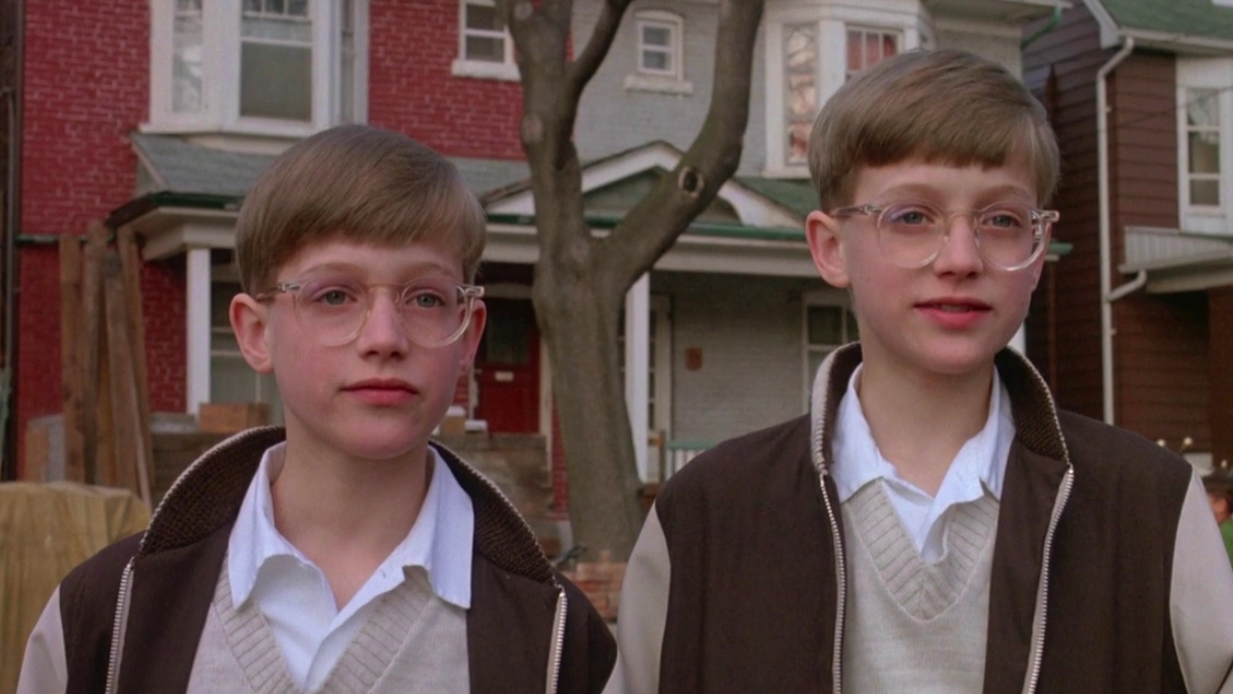Dead Ringers (dir. David Cronenberg, 1988)
Audiences worldwide know David Cronenberg as the director of some of the most shocking, perverse, and original scenes of body horror ever conceived for the cinema, from the goopy excesses of The Fly to his recent outing Crimes of the Future. Initially dismissed for his excoriating excursions into science and the flesh with the “schlock horror” label, the Canadian Cronenberg has, through his marriage of psychological and physical grostesquerie, positioned himself adjacent to a more European brand of auteur.
Dead Ringers (1988) gestated from the stranger-than-fiction real life story of identical twin gynaecologists Stewart and Cyril Marcus. Discovered partially decayed and almost naked in their New York apartment in 1975, where they had died from barbiturate withdrawal, the Marcuses are reincarnated here as Beverly and Elliot Mantle, identical twin gynaecologists both played by Jeremy Irons. The twins share a lifelong dedication to their practice, expressed in a blackly comic overture, showing their reedy schoolboy selves chasing a girl through suburban Canada. ‘Fuck off!’ chides their quarry, in response to their lewd received pronunciation. Beyond that, the twins do differ in some ways, most obviously in their interactions with women. Elliot is the more confident of the two and often indulges in affairs with his patients; Beverly, the meeker, sweaty, speccy one, has to wait for his cast-offs. This perverted balance is soon disrupted by the presence of the actress Claire Niveau (Geneviève Bujold), with whom Beverly falls in love, ushering in dire consequences for the twins and their practice.
Dead Ringers plays up to Cronenberg’s fascination with bodily alterations, while heightening a focus on the discomforting nature and conceptions of the human body. Garbed in papal red operating costumes, the twins egg one another on in their deviance, drawing disgust from the outside world. The film eschews the cliché of the good twin/bad twin; in Cronenberg’s hands, Elliot and Beverly Mantle are one soul, split into two bodies and two mutually dependent minds at the point of conception. Elliot’s sexual and professional conduct is as confident and ruthless as Beverly’s is modest and sensitive, together they function as a perfect yin-yang, a self-regulating biological unit. Evoking the notion of homeostasis — the process by which an organism maintains internal stability while adjusting to a changing external environment — the twins balance each other out, their respective strengths and weaknesses, respectively male and female attributes, cancelling the other out by virtue of splendid opposition.
“Do you share a bed?” asks actress Claire (Geneviève Bujold), a client of Elliot’s who crosses one ethical boundary by embarking on an affair with his brother — only to gradually figure out that she’s been sleeping with both of them. The ostensibly more sensitive Beverly’s infatuation with Claire draws him away from Elliot, whom she perceives as having exploited them both. She is unable to provide Bev with an equivalent full-time support system. He becomes dangerously unstable, relying on drugs to fill the gap. Elliot, meanwhile, proves ready to do anything, no matter how self-destructive, to maintain that filial closeness, exposing his own vulnerabilities and the flimsiness of his smugly self-confident façade.
Despite being one of Cronenberg’s more restrained efforts by measure of latex and fake blood, Dead Ringers deploys a different kind of technical mastery, framing the Mantle twins as both individual characters and a singular entity. Jeremy Irons’ multi-award-winning dual performance(s) as the twins imbues the whole with a humanity not always present in Cronenberg works. In this film, the troubled men lay their objectively baleful behaviors at the feet of inattentive women. Thanks to the complex, multifaceted nature of both twins in Irons’ portrayal, the two can be distinguished by small behavioural details, even as Elliot begins to lose his own identity in his efforts to reconnect with Beverly.
Though the spaces which the twins inhabit initially have the sterile quality to be expected in a medical setting — or the ‘stealth wealth’ of their American Psycho-era East Coast lives — the angled walls and windows in Elliot’s office trap the brothers in a psychological bombsite, and set up a stage of sorts for the ultimately Christlike tableau of their demise. This movie is relentlessly interior in its depiction of personal chaos, providing very few glimpses of the exterior world — only the first and penultimate scenes, and at mid-point, Beverley staggering vomit-streaked down the road on his drug-addled quest for Claire.
As the twins continue their glaring yet affectingly tragic course, Cronenberg demonstrates a more sympathetic side to their proto-toxic masculinity. Rather than the director’s usual, external body horror (which, don’t worry, finds its place towards the climax), it’s the society in which the two ‘freaks’ find themselves that furnishes the real disgust of the film. As the twins’ mutually sustaining symbiosis shatters under external pressures, Dead Ringers begs broader questions about individual self-worth and self-identification, and the nature of a society which forces people to conform — no matter how that might deform them.







